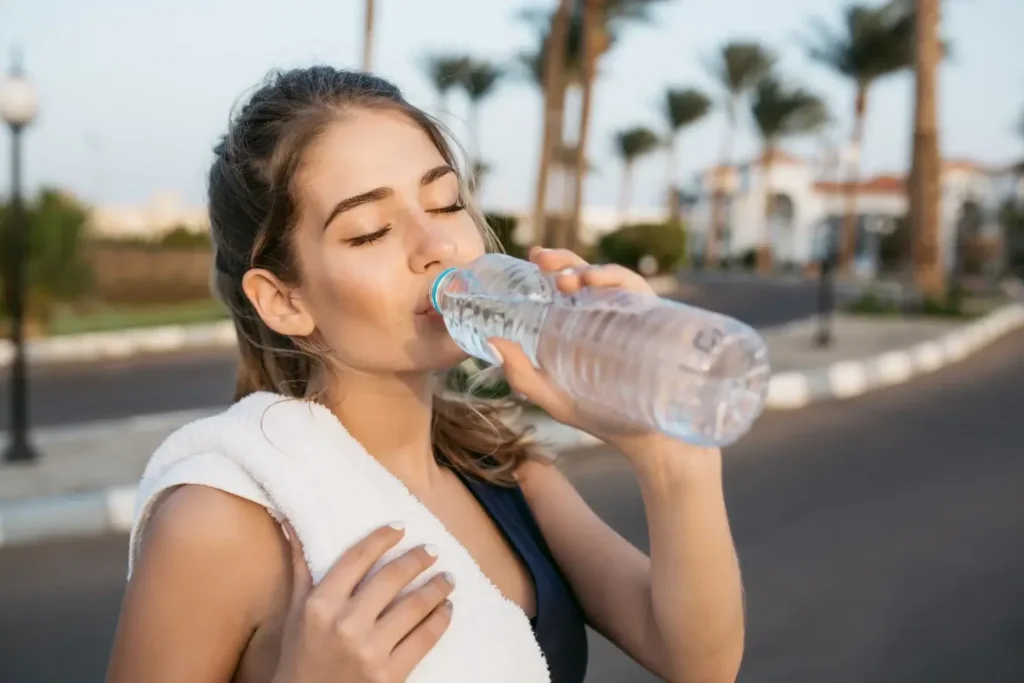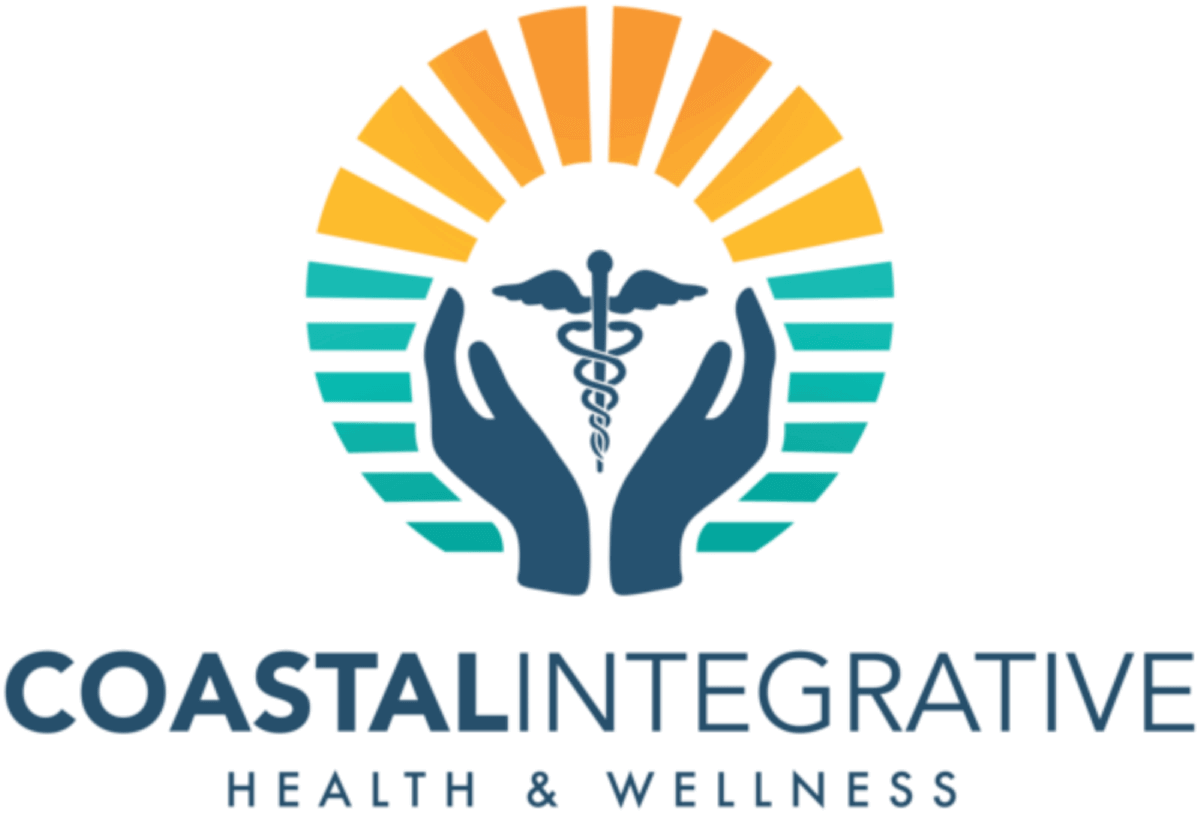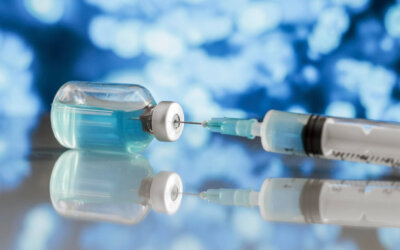
Water comprises around 60%, which is more than half of your body weight. Maintaining adequate fluids in the body is extremely important as it plays an essential role in various physiological processes that maintain our health. That’s why it is undoubtedly the most important nutrient and the only one whose absence will be lethal within days.
There are untold benefits to proper hydration for your overall health. The list below is focused on what has been demonstrated in the scientific literature:
Detoxification
Water helps eliminate waste products from the body. Increased fluid intake helps support healthy bowel movements, which is our primary pathway of detoxification. Proper hydration also helps to clear toxins through the urine and sweat.
Brain Function
Research has shown that as little as 2% dehydration can negatively affect your mood and cognitive functions. The effects of mild dehydration can include fatigue, difficulty concentrating, short-term memory loss, increased irritability, and depression. Maintaining adequate fluids helps regulate body temperature, which is crucial for optimal brain function.
Weight Management
Drinking water can promote a feeling of fullness, thereby reducing hunger. Proper hydration has been shown to help with both losing weight and maintaining a healthy weight. Additionally, water intake impacts energy intake, and replacing sugar-sweetened beverages with water can further support weight management.
Digestion and Nutrient Absorption
Water is essential for the production of digestive enzymes and for the absorption of nutrients in the intestines. Proper hydration helps prevent excess fluid loss through the skin, kidneys, and bowel function.
Joint Lubrication
Water contributes to the “synovial fluid” that lubricates joints, reducing the risk of friction and wear. This is particularly relevant to preventing osteoarthritis as we age.
Hydration for Cells
Optimal cellular hydration is essential for proper cell function, including energy production, protein synthesis, the transport of nutrients into the cell, and the removal of waste products. Dehydration can lead to cell dysfunction, which in turn affects various bodily functions. Plain water is crucial for maintaining optimal cellular hydration.
Maintains Blood Volume
Enough hydration helps maintain your blood volume, ensuring efficient oxygen and nutrient delivery to your cells. Having good hydration also means improved blood pressure. However, severe hypertension is a contraindication for increased water intake.
Prevention of Disease
Good hydration is associated with a reduction in constipation, kidney disease, headaches (including migraines), asthma, gallstones, urinary tract infections, heart disease, and more. Enough hydration helps prevent excess fluid loss and supports kidney function.
Other Benefits & Facts About Hydration
| Benefit | Key Facts | Supporting Stats |
| Kidney Function | Helps filter waste and prevent stones | Reduces kidney stone risk by 40% |
| Cellular Homeostasis | Water is essential for cell function | Water is a universal solvent. |
| Temperature Regulation | Helps release heat via sweat | Dehydration of 1-2% body weight impairs thermoregulation |
| Digestive Health | Aids in digestion and prevents constipation | It reduces constipation risk. |
| Physical Performance | Prevents fatigue and improves endurance | 2% dehydration reduces performance by up to 30% |
| Cognitive Function | Vital for brain function | Mild dehydration impairs mood, concentration, memory |
| Mild dehydration impairs mood, concentration, memory | Maintains blood volume and circulationMaintains blood volume and circulation | Dehydration increases cardiovascular risk |
How Much Fluid Intake Should You Have?
Water needs can vary based on several factors like age, weight, climate, physical activity level, and individual health. Drinking fluids is essential to meet daily hydration needs. The National Academy of Medicine suggests an adequate intake of daily fluids of about 13 cups (approximately 3 Liters) for healthy men and 9 cups (approximately 2 Liters) for women.
You also get increased hydration needs during the following situations:
- Fever
- Exercise
- Extreme temperatures
- Excessive loss of body fluids due to diarrhea or vomiting
During those times, monitor your fluid intake to ensure proper hydration. Consider all fluid sources like beverages, water, and water-rich foods.
Water needs can vary based on several factors like age, weight, climate, physical activity level, and individual health. Drinking fluids is essential to meet daily hydration needs. The National Academy of Medicine suggests an adequate intake of daily fluids of about 13 cups (approximately 3 Liters) for healthy men and 9 cups (approximately 2 Liters) for women.
You also get increased hydration needs during the following situations:
- Fever
- Exercise
- Extreme temperatures
- Excessive loss of body fluids due to diarrhea or vomiting
During those times, monitor your fluid intake to ensure proper hydration. Consider all fluid sources like beverages, water, and water-rich foods.
Tips For Proper Hydration
Use a Filter
Filtered water tastes better, which can lead to drinking more. Some of your options for this are reverse osmosis or distilled water. You can also use basic filters like Brita for a good start.
Reduce Alcohol Consumption
Alcohol can suppress anti-diuretic hormones, leading to the body flushing out water more easily. This can increase your risk of severe dehydration. That said, limit your alcohol intake and make sure to drink water and carry with you a reusable water bottle to stay hydrated wherever you go.
Replenishing Electrolytes
Avoid drinks with added sugar, coloring, or preservatives. Energy drinks, which often contain large amounts of caffeine and sugar, should be avoided, especially for children and teens, as they can lead to dehydration. Instead, purchase electrolyte formulas made by supplement companies.
Another option is to make it yourself. Just mixed up 1/2 liter of filtered water, 1/2 to 1 freshly squeezed lemon, 1/2 liter of coconut water, 1/4 tsp of salt, 1/2 tsp of baking soda, and 1 tsp maple syrup. Coconut water can also be consumed alone to help replenish electrolytes.
Try Warm Water
An ancient recommendation in traditional Chinese medicine for better digestion, modern research also suggests that people tend to drink more water when it is served at room temperature. To see what works best for you, try to experiment with warm, cold and hot water.
Safety Considerations: Avoiding Mild Dehydration
There is no ‘Tolerable Upper Intake Level’ for water because the body can typically discharge extra water through urine or sweat. However, in rare cases, large amounts of fluid intake in a short amount of time can lead to a dangerous condition where blood levels of sodium fall too low, causing symptoms such as:
- Confusion
- Nausea
- Seizures
- Muscle spasms
Make sure to maintain enough fluid levels to prevent excess fluid loss that go through the skin, kidneys, and bowel function. Proper hydration supports healthy skin, kidney function, and helps prevent constipation.
However, this is usually only seen in ill people whose kidneys are not functioning properly under conditions of extreme heat stress or prolonged strenuous exercise, such as in triathletes and marathon runners.
Drinking additional water is contraindicated in congestive heart failure and severe hypertension. If you are unsure if drinking additional water is safe, always consult your healthcare provider.
Conclusion
Keeping yourself hydrated can reap several benefits of hydration, including weight control, detoxification, digestion, brain function, joint health, and disease prevention. Dr. Coren Tomilson, a Naturopathic practitioner in Nanaimo, Canada, emphasizes the importance of staying hydrated. Make sure you are hydrated at all times to prevent dehydration and enjoy the health benefits of drinking glasses of water. If you have any questions, fill out the form below, and our team at Coastal Integrative Health & Wellness will get back to you as soon as possible.










